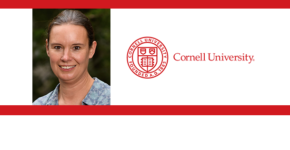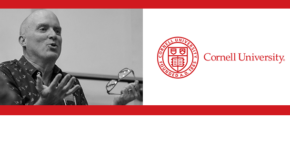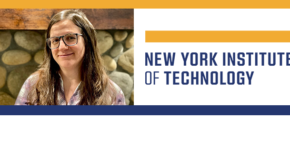Tag: psychology
-

Gail Sahar, Wheaton College – The Psychology of Blame
Politicians can do better when it comes to interacting with the public. Gail Sahar, Jane Oxford Keiter professor of psychology at Wheaton College, examines how. Gail Sahar is the Jane Oxford Keiter Professor of Psychology at Wheaton College in Norton, Massachusetts, where she teaches courses on social psychology, political psychology, and statistics. Her research focuses…
-

Michele Belot, Cornell University – How Do We Get People to Reconsider Their Choices and Behaviors?
On Cornell University Week: Getting people to reconsider their choices can be tricky. Michele Belot, professor of economics, discusses why. Michèle Belot is Professor of Economics at Cornell University. Her recent research focuses on behavioral change in areas such as job search, dietary habits and political opinions. She has designed and tested interventions using randomized…
-

David Shoemaker, Cornell University – Why Psychopaths Have Bad Senses of Humor
On Cornell University Week: The lack of a sense of humor could mean bad things. David Shoemaker, professor and interim chair of the Sage School of Philosophy, explores why. David Shoemaker is a Professor and Interim Chair of the Sage School of Philosophy, Cornell University. His research focuses on humor and morality, agency and responsibility,…
-

Lily Zhu, Washington State University – How to Unlock Your Creativity
You can choose to think more creatively. Lily Zhu, assistant professor in the department of management, information systems, and entrepreneurship at Washington State University, explores how. Dr. Lily Zhu is an Assistant Professor in the Department of Management, Information Systems, and Entrepreneurship at Washington State University’s Carson College of Business. She received her Ph.D. in…
-

Toria Herd, Penn State University– The Teen Mental Health Crisis Continues to Worsen
Mental health challenges affect everyone. Toria Herd, postdoctoral research fellow at Penn State University, discusses the issues facing one group. Dr. Toria Herd received her PhD in Developmental Psychology from Virginia Tech in 2021. She received her M.S. in Developmental Psychology at Virginia Tech and her B.A. in Psychology from the State University of New…
-

Brad Bushman, The Ohio State University – How a Child Can Become a Shooter
What influences kids to want to use a gun? Brad Bushman, professor of communication and Rinehart chair of mass communication at The Ohio State University, delves into this question. For over 30 years Brad Bushman has studied aggression and violence. He was a member of President Obama’s committee on gun violence, has co-chaired two reports…
-

Melissa Huey, New York Institute of Technology – The Psychological Impact of Smartphones in the College Classroom
Smartphones are everywhere, including the classroom. Melissa Huey, assistant professor of behavioral sciences at the New York Institute of Technology, examines how it affects students. Melissa Huey, Ph.D., is an assistant professor of behavioral sciences at New York Institute of Technology. Huey’s research interests are twofold. The first area focuses on parenting and the impact…
-

Emily Huddart Kennedy, University of British Columbia – We Can’t Stop Climate Change by Hating Each Other
Coming together is crucial to fighting climate change. Emily Huddart Kennedy, associate professor and associate head in the department of sociology at the University of British Columbia, exposes how stereotypes keep us apart. Emily Huddart Kennedy is Associate Professor and Associate Head in the Department of Sociology at UBC and the author of the recently…
-

Ben Cotterill, Clemson University – Children’s Eyewitness Testimony
Can a child be a reliable eyewitness? Ben Cotterill, lecturer in forensic psychology at Clemson University, examines this question. Ben Cotterill, PhD, is a lecturer at Clemson University, where he teaches courses relating to forensic psychology. His research interests include personality development, the reliability and credibility of eyewitness testimony, and testing police procedures used with…
-

Joel Frohlich, University of Tubingen – How to Spot Pseudoscience in an Age of Conspiracy Theories
Spotting pseudoscience can be key to staying correctly informed in today’s world. Today on The Academic Minute: Joel Frohlich, postdoctoral research scientist at the University of Tubingen, explains why. Dr. Joel Frohlich is a neuroscientist and postdoctoral researcher studying brain stimulation in the laboratory of Professor Alireza Gharabaghi at the University of Tübingen in Germany.…
